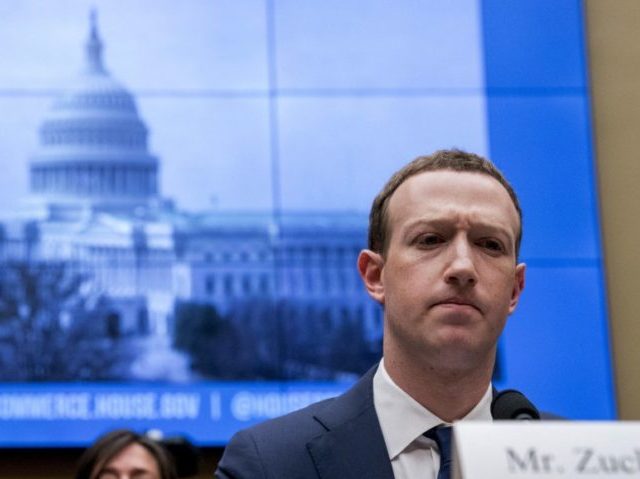In a recent article, Bloomberg suggests that the dangers of social media be publicized and discussed openly, rather than antitrust measures being introduced to control social media firms.
In an op-ed titled “Treat Facebook Like Big Tobacco,” Elaine Ou writes for Bloomberg that the “Government should scrutinize and publicize the harms of social media – not use antitrust regulation to encourage even more platforms.” Ou notes that a number of politicians have called for the regulation or breaking up of Facebook in recent months, but this may not be an effective solution to the problems posed by social media.
Ou writes:
Earlier this month, Facebook co-founder Chris Hughes argued that Facebook should be broken up because of its lack of accountability. In the column, he describes himself compulsively scrolling Instagram as his infant son plays alone on the floor. Hughes acknowledges that his behavior is not good for the child, but he says he can’t pull his attention from the screen. It’s reminiscent of an old anti-drug commercial, where an elderly woman sits woeful and alone at a prepared dinner table. Voiceover: “Just tell Grandma you blew off the dinner plans you made with her because you were stoned.” Just tell your firstborn you missed his first words because you were checking Facebook.
This is the result of ruthless optimization for user engagement.
Ou notes that Facebook can actually present mental health dangers, an issue which is not discussed regularly. Former Facebook president Sean Parker stated in an interview in 2017 that social media was “exploiting” human psychology. Ou writes:
Studies have repeatedly found that social media can damage the emotional health of frequent users, and excessive use has been found to be associated with addictive-like symptoms. Sean Parker, Facebook’s founding president, described the application as “a social-validation feedback loop … exactly the kind of thing that a hacker like myself would come up with, because you’re exploiting a vulnerability in human psychology.”
Antitrust regulation won’t help here. Facebook achieved outsize market share with an addictive product. A competing platform would need to do an even better job of exploiting psychological vulnerability to topple the incumbent. But the solution to a harmful industry dominated by a monopoly is not to foster equally harmful competitors; it’s to reduce our dependence on the industry as a whole.
Regulatory proposals should begin by protecting the youth. Facebook has a messaging app designed for kids under 13, but expecting the platform to protect children from harmful content is like asking the tobacco industry to make a kid-friendly cigarette. There’s sort of a conflict of interest going on. If Silicon Valley execs refuse to let their own children use apps, perhaps they shouldn’t be allowed to market their apps to other people’s children either.
Ou finally suggests that the best way to neutralize the problems posed by Facebook is simply for users to utilize the platform less:
That brings us to another response outside the realm of antitrust: Tobacco companies are now required to disclose the contents of their products and open their processing facilities to inspection to reduce information asymmetry between the consumer and manufacturer. The source code behind Facebook’s news feed should be made available for inspection as well.
The nationwide decline in tobacco use was the result of decades of public awareness campaigns. The government should recognize social media for its psychologically exploitative properties and treat these companies the same way – with restrictions on youth targeting and with publicity about the risks. The anti-drug ads depicting a fried egg can be repurposed to illustrate what your brain looks like at the hands of tech employees who like to “move fast and break things.”
A side benefit of more scrutiny and awareness is that most of the problems associated with Facebook’s dominance will go away if we all stop spending so much time on social media. After all, Facebook can’t be a tool of election interference if no one uses Facebook.
It appears that people are beginning to question the benefit of social media platforms such as Facebook; according to a recent report, the company has struggled to hire new talent following a number of privacy-related scandals. A recently proposed Texas bill would also allow the state to punish censorship on social media, but perhaps the true answer to these issues is exactly what Ou suggests — don’t use these platforms.
Lucas Nolan is a reporter for Breitbart News covering issues of free speech and online censorship. Follow him on Twitter @LucasNolan or email him at lnolan@breitbart.com

COMMENTS
Please let us know if you're having issues with commenting.